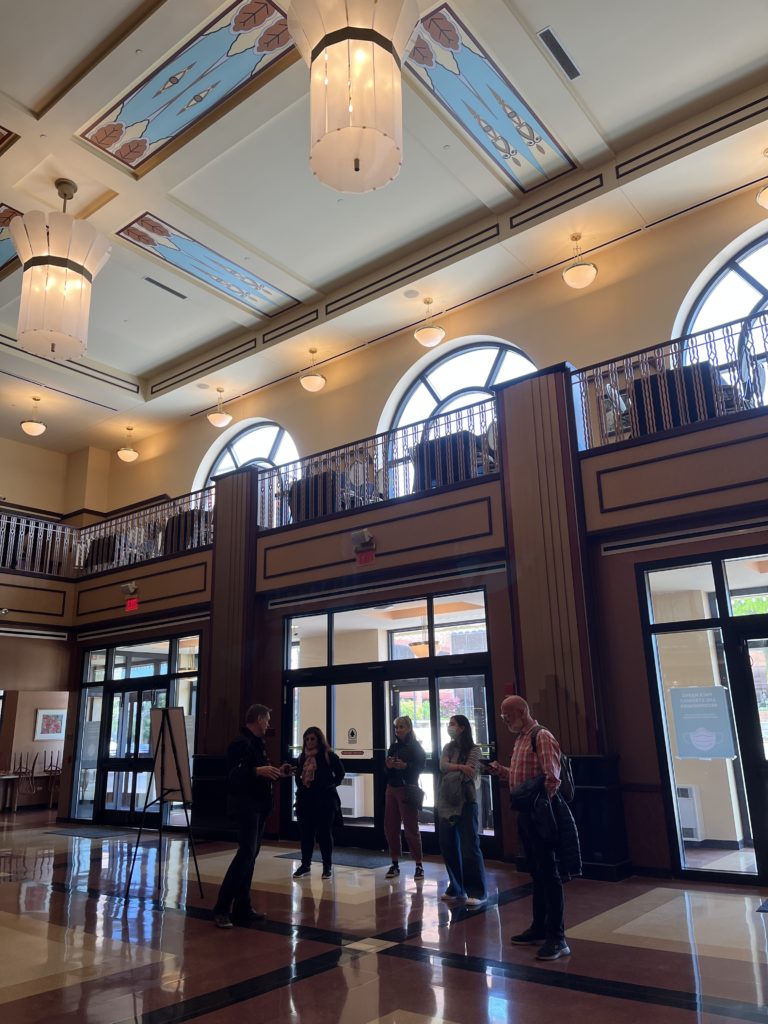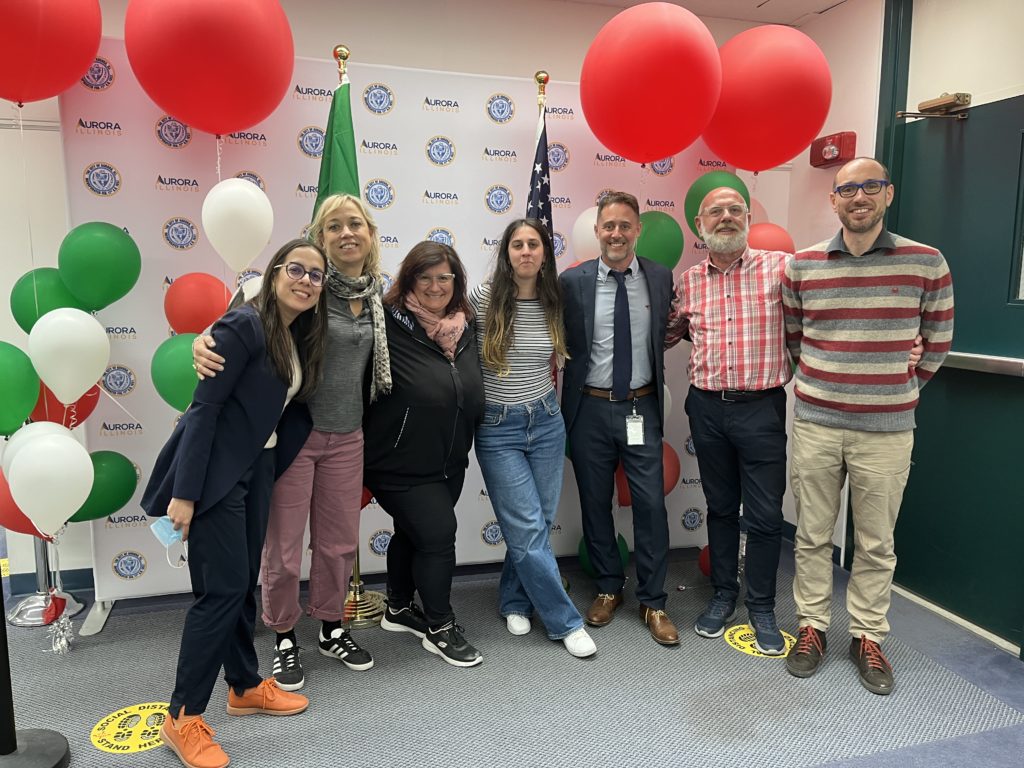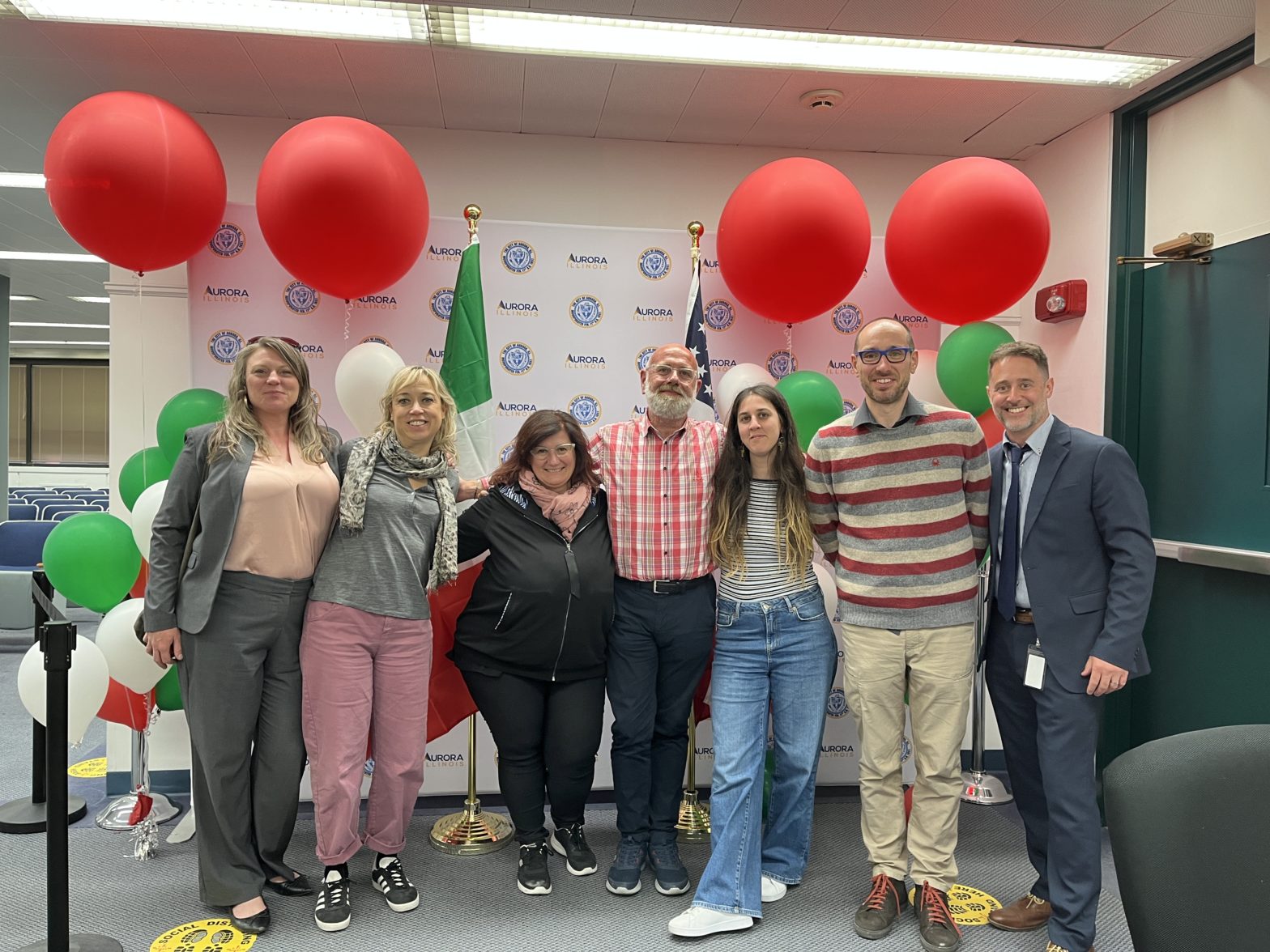23 – 25 May 2022
The cities of Bergamo and Rimini, Italy, undertook their first study visit as part of the IURC program in Aurora, Illinois, in the US. The five Italian delegates focused for three days on their agreed thematic areas of cooperation:
- Sustainable Urban Mobility
- Nature-Based Solutions
- Culture and Tourism
On Monday, May 23rd, Mayor Richard C. Irvine welcomed the delegations from Bergamo and Rimini. Then, Alex Minnella, Senior Planner, presented the IURC NA program, the scope of the study visit, and the areas of cooperation. The Italian representatives also gave a brief overview of their cities, and the three municipalities exchanged flags to symbolize their commitment to partner and cooperate to achieve sustainable urban development.
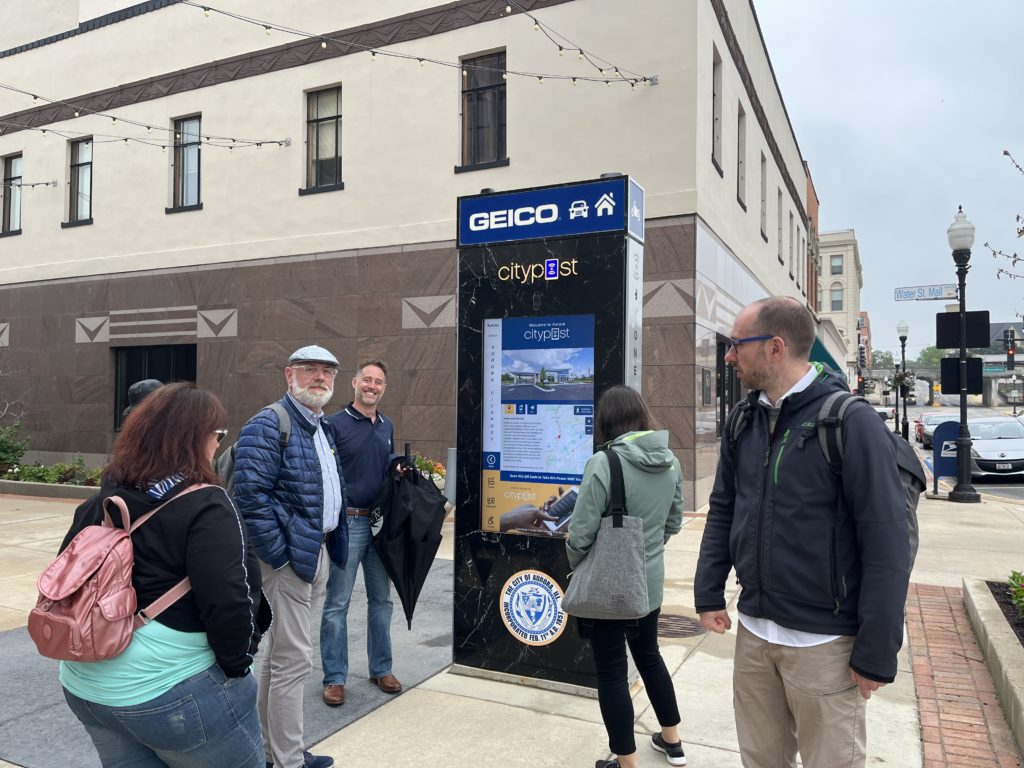
The first field visit focused on nature-based solutions, transportation-oriented programs & plans, and zoning to enhance Aurora’s urban landscape and quality of life. From rain gardens and bike sharing systems to smart streets and transit-oriented development, the Aurora downtown is being transformed to ensure sustainable and equitable growth.
The second day of the visit started with a technical meeting on public art and community engagement. The diversity of Aurora and its history with segregation have pushed the city to organize and support programs that catalyze social cohesion and inclusivity. To celebrate, welcome, and strengthen the links between different cultures, Aurora supports festivals from different cultures and races and a joint one called Roots Aurora. These festivals are also an economic engine that attracts visitors from other places. Art projects also have an essential role in Aurora, highlighting local talent and showcasing it at a regional and international level to overcome cultural differences and attract tourism and economic development. Some examples include a refugee photography program, community murals, and an international stamps street exhibit.
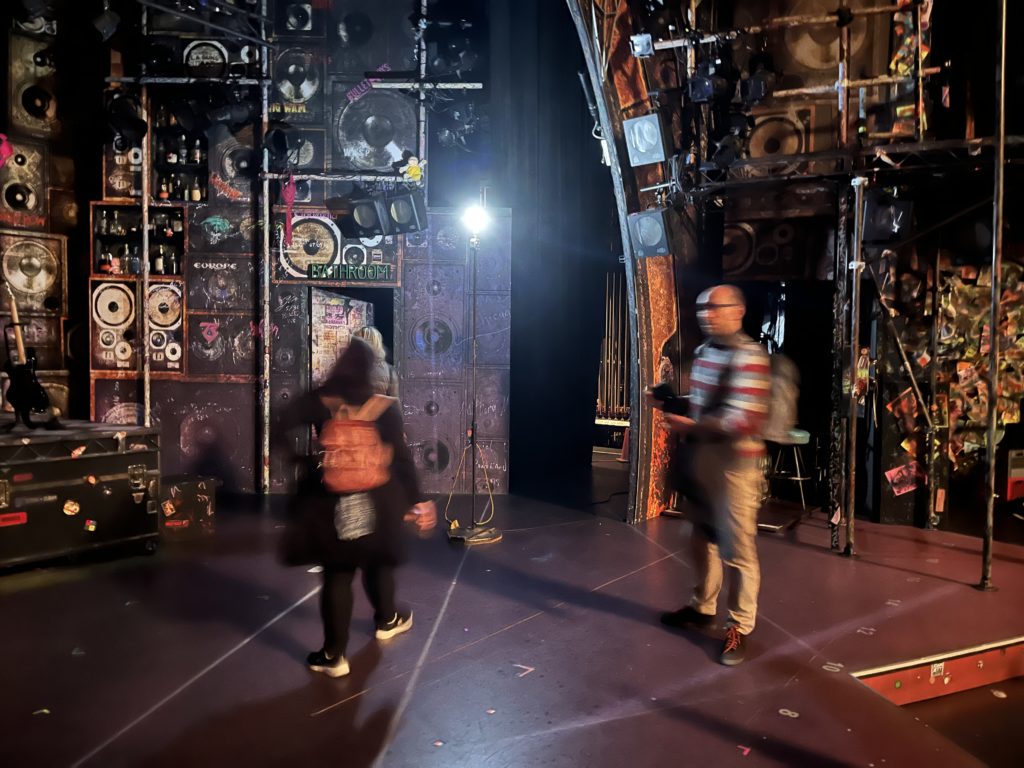
“Art is the glue that brings everything together.”
Jen Byrne, Public Art Director
The group also learned about the success and business model of the Paramount Theater, which self-produces broadway shows that attract large numbers of visitors each year. The theater’s success has become an essential part of the regeneration of the historic downtown area, contributing directly to the development of affordable housing and attracting new businesses that serve the theater’s audience.
During the afternoon, the Aurora Economic Development Commission led a field visit in the historic downtown area of two mixed-use developments rescuing dilapidated landmark buildings and transforming them into modern and energy-efficient housing. In partnership with the City of Aurora, these projects are part of a larger urban regeneration project that will drastically improve the historic downtown area. Through tax incentives and long-term agreements, the city is attracting developers and investors interested in the future of Aurora. The group also visited the pedestrian and bicycle bridge in River Edge Park, which is not only important in terms of mobility but has attracted investments for the redevelopment of the surrounding area.
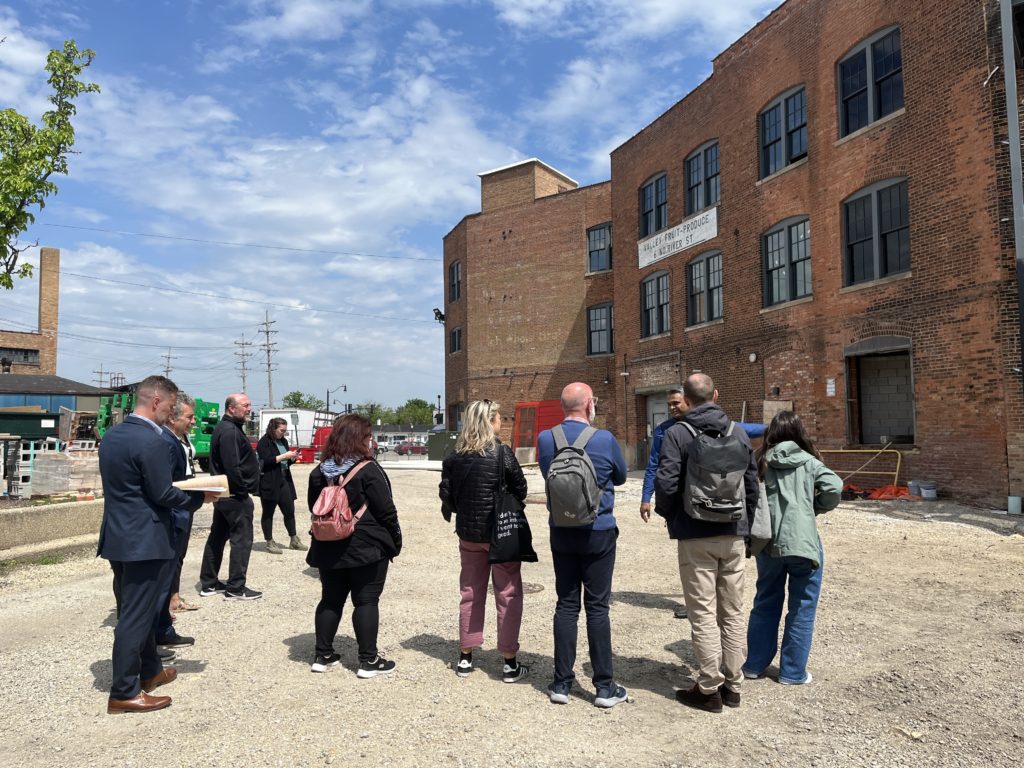
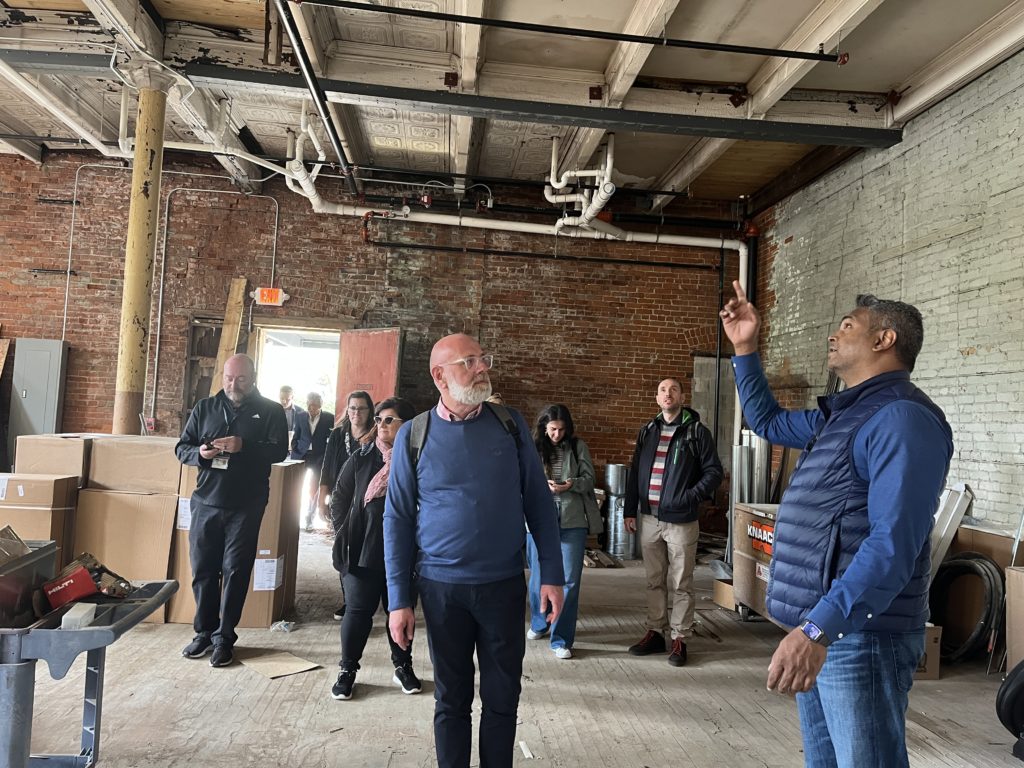
The day ended at the Aurora City Council, which invited the delegates from Bergamo and Rimini to participate in one of their meetings. The visiting officials were very interested in the processes to approve budgets and projects, which are very different in both countries. They were also gladly surprised to see that in Aurora, citizens have the ability to participate directly and voice their opinion during decision-making City Council meetings. The session ended with the welcoming and recognition of the visiting delegates by the City Council.
The third and last day of the visit began with a Smart City technical meeting about the long-term vision and strategies to achieve affordable, fast, and reliable connectivity and create an economically sustainable model that will attract investments and revenue to Aurora. The Aurora ICT department, led by Michael Pegues, Chief Information Officer of Aurora, focuses on bridging the digital divide, cybersecurity, reducing costs through tech, and developing a long-term investment plan to make Aurora a tech destination.
The final field tour in a former mall parking area exemplified the transition from a car-centric city to one prioritizing housing and public space. The group also had an overview of the challenges faced by many cities in the US with suburban sprawl. For example, pushing for housing developments to include transport to main transport stations. However, after the units are sold, new residents are unwilling to pay for transportation to the station and prefer to continue using single-occupancy vehicles.
The day ended with a closing session that served delegates from the three cities to reflect upon the lessons learned and to start planning the study visit to Italy.
